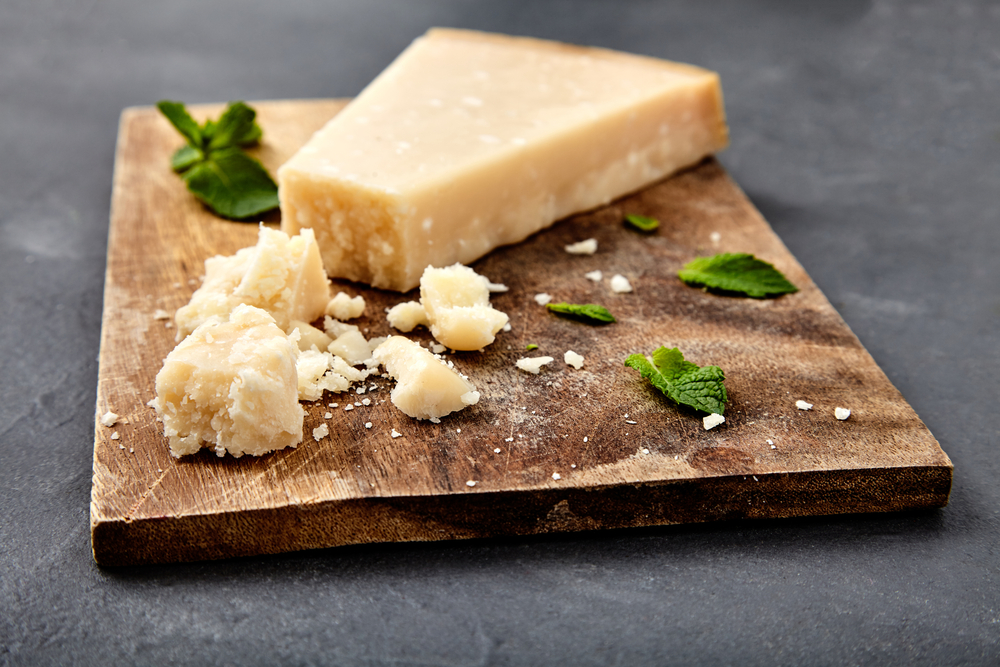
It was just over a year ago that Italian Prime Minister Matteo Renzi and Alibaba inked a memorandum of understandingto promote and protect “Made in Italy” agricultural products.
Since then, Italy’s food regulator gives the Chinese e-commerce giant high marks for its work ensuring the authenticity of some of the European country’s most-famous regional delicacies sold through Tmall.
“Cooperation is very, very good – a real cooperation,” said Stefano Vaccari, head of ICQRF, the government body responsible for safeguarding Italy’s agri-food products.
In all, Vaccari said his group’s takedown requests have had “huge” results, and protected many thousands of tons of inauthentic products from being sold. Mr. Vaccari praised the experience and said the process of lodging takedown requests with Alibaba’s Intellectual Property Protection platform has gone smoothly.
“The protection is very strong. It’s very fast,” Vaccari said. “I’m very satisfied.”
Alibaba also uses artificial intelligence to constantly scan product listings and proactively weed out infringing listings. And Mr. Vaccari said he and his team have had multiple meetings with Alibaba about IP protection, and built “a strong cooperation on a personal level,” a sentiment shared by Alibaba.
“The relationship with Mr. Vaccari and his staff at ICQRF began from a point of mutual trust and understanding, and the success of the collaboration is what we envisioned when we signed our memorandum of understanding with the Italian government. Both Italian brands and Chinese consumers have clearly benefited from our collaboration,” said Matthew Bassiur, Alibaba’s head of global intellectual property enforcement.
The MOU signed by Renzi and Alibaba allowed the Italian government to be the first to enforce its recognized designations of origin and geographic indications on Alibaba platforms. In all, the agreement so far covers 16 products traded on Alibaba platforms, including wines such as Chianti DOCG and Prosecco wines which are produced in specific regions , Tuscan Extra Virgin Olive Oil, and cheeses such as Parmigiano-Reggiano, Pecorino, Gorgonzola, and Mozzarella di Bufala Campana.
The protections given to these ‘Made in Italy’ designations and geographic indications for agricultural products were the same as those granted to other commercially branded products on Alibaba platforms.
It was the second MOU between Alibaba and Italy, after onesigned in 2014to mark a collaboration in working to match Italian brands and goods with the best product categories on Tmall forChinese customers.Alibaba.com, the group’s B2B platform and related logistics company, Cainiao, also explored cooperation with Italian companies.
Italian products have proved popular among Chinese consumers, including wine and luxury goods. Over 100 Italian brands sell products on Tmall in the autos, food and apparel sector. Ferrero sells its chocolates through the platform, and last yearMaserati sold 100 Levante sport-utility vehicles, which start with a sticker price of $72,000, in 18 seconds during a brand promotion day.
Vaccari said he’d like to expand existing protection out to 40 Italian agricultural products and for Alibaba to help his department teach Chinese consumers about the benefits of buying real Italian products.
“A very important role can be played by Alibaba in the field of education – the education of consumers,” he said. “For example, Alibaba has the ability to give information about the real composition and attributes of single products. There’s probably even more cooperation we can do in educating the consumers.”
He said Italy and the EU could one day return the IP-protection favor as China expands with its regionally made products overseas. And he said he knows other EU countries have viewed the positive results at working with Alibaba over the past year with some optimism.
“Other countries, I’m sure, in the future, will want to cooperate with Alibaba,” Vaccari said. “I certainly would encourage them to.”




